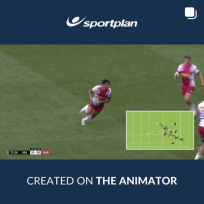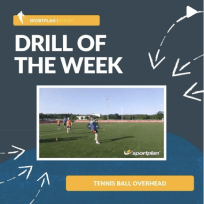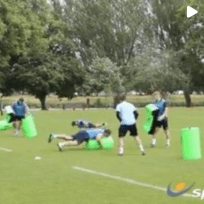Sportplan rugby has played a large role in my team's love for the game!
Tackle and release. What is the best way to teach the new application of law 15.4 and 15.5 as played in the Super14. This application of the law is also applied to all levels of rugby in SA.
During a recent U17's league game, the opposing side took two consecutive quick tap penalties. During a break in play shortly after, as the coach attending an injured player, I questioned the referee on the legality of this passage of play, as my understanding was that two consecutive quick taps, used to catch the opposition in an offside position and therefore gain terratorial advantage, was not allowed under current law. The referee responded that this law is at his discretion and when we discussed after the game, he stated there is no such aw and that it is a "gentlemens agreement". I have since reviewed the laws on penalties and there is no specific law preventing a side taking two quick tap penalties. Has anyone else come across this interpretation and how can this be managed consistantly if when watching elite games, such a move is not allowed yet can be allowed at junior level ?

in more ways than one




Here are the 5 ways that you can kickstart your 2025 in the correct way with Sportplan and make this the best coaching year you have had!

How did the Modern Olympics originally begin and why are they so culturally significant today?

The Professionalisation of Netball is changing the game. Here is how it is helping to develop the sport.
Coaches from around the world look to Sportplan for coaching confidence.